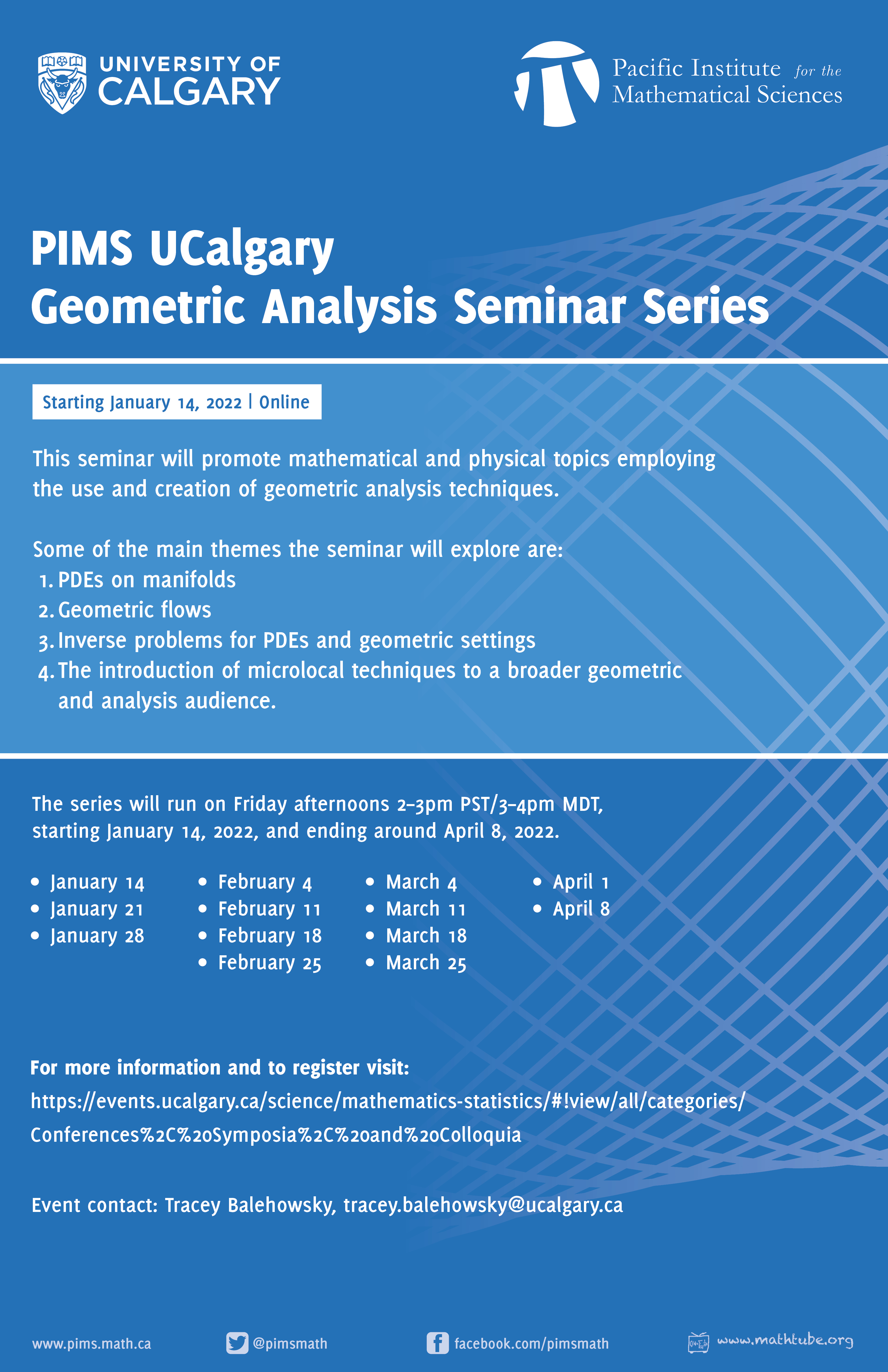PIMS - UCalgary Geometric Analysis Seminar Series: Virginia Naibo
Topic
Speakers
Details
Abstract: New aspects of the solvability of the classical Neumann boundary value problem in a graph Lipschitz domain in the plane will be presented. When the domain is the upper half-plane and the boundary data is assumed to belong to weighted Lebesgue or weighted Lorentz spaces, it will be shown that the solvability of the Neumann problem in these settings may be characterized in terms of Muckenhoupt weights and related weights, respectively. For a general graph Lipschitz domain $\Omega$, as proved in an unpublished work by E. Fabes and C. Kenig, there exists $\varepsilon_\Omega>0$ such that the Neumann problem is solvable with data in $L^p(\partial\Omega)$ for $1<p<2+\varepsilon_\Omega;$ it will be shown that the Neumann problem is solvable at the endpoint $2+\varepsilon_\Omega$ with data in the Lorentz space $L^{2+\varepsilon_\Omega,1}(\partial\Omega).$ Examples of the results in Schwarz-Christoffel Lipschitz domains and related domains will be given. This is joint work with María Jesús Carro (Universidad Complutense de Madrid) and Carmen Ortiz-Caraballo (Universidad de Extremadura).
Speaker Biography: Virginia Naibo earned her undergraduate degree, or Licenciatura, in mathematics from Universidad Nacional de Rosario and her doctorate in mathematics from Universidad Nacional del Litoral, Argentina. She held a three-year postdoctoral position at the University of Kansas and was a tenure-track assistant professor at Rose-Hulman Institute of Technology for a year before joining the faculty of the mathematics department at Kansas State University, where she is professor and associate department head.
Naibo’s research interests are in the area of Fourier analysis; in a broad sense, this branch of mathematics allows the study of signals, such as sounds and images, by breaking them down into fundamental pieces that are less complex and, therefore, easier to examine. Her more recent work concerns the study of different aspects of linear and bilinear pseudodifferential operators and singular integrals, Leibniz-type rules, commutator estimates and function spaces, among other topics. Applications of her work to analysis and partial differential equations include pointwise multiplication properties of function spaces, well-posedness results for Euler, Navier-Stokes and Korteweg-de Vries equations as well as for the Ideal Magneto Hydrodynamic equations, smoothing properties of Schrödinger semigroups, and scattering properties of solutions to systems of partial differential equations associated to local and nonlocal operators.
Additional Information
This seminar is available via Zoom. Registration is required.
Time: 2–3pm PST (3–4pm MDT)
-------
This seminar series will promote mathematical and physical topics employing the use and creation of geometric analysis techniques. Some of the main themes the seminar will explore are 1) PDEs on manifolds, 2) geometric flows, 3) inverse problems for PDEs and geometric settings, and 4) the introduction of microlocal techniques to a broader geometric and analysis audience.
The series will run on Friday afternoons 2–3pm PST (3–4pm MDT), starting January 14, 2022 and ending around April 8, 2022. See more information and other dates in the series or contact Tracey Balehowsky, tracey.balehowsky@ucalgary.ca
Virginia Naibo, Kansas State University

